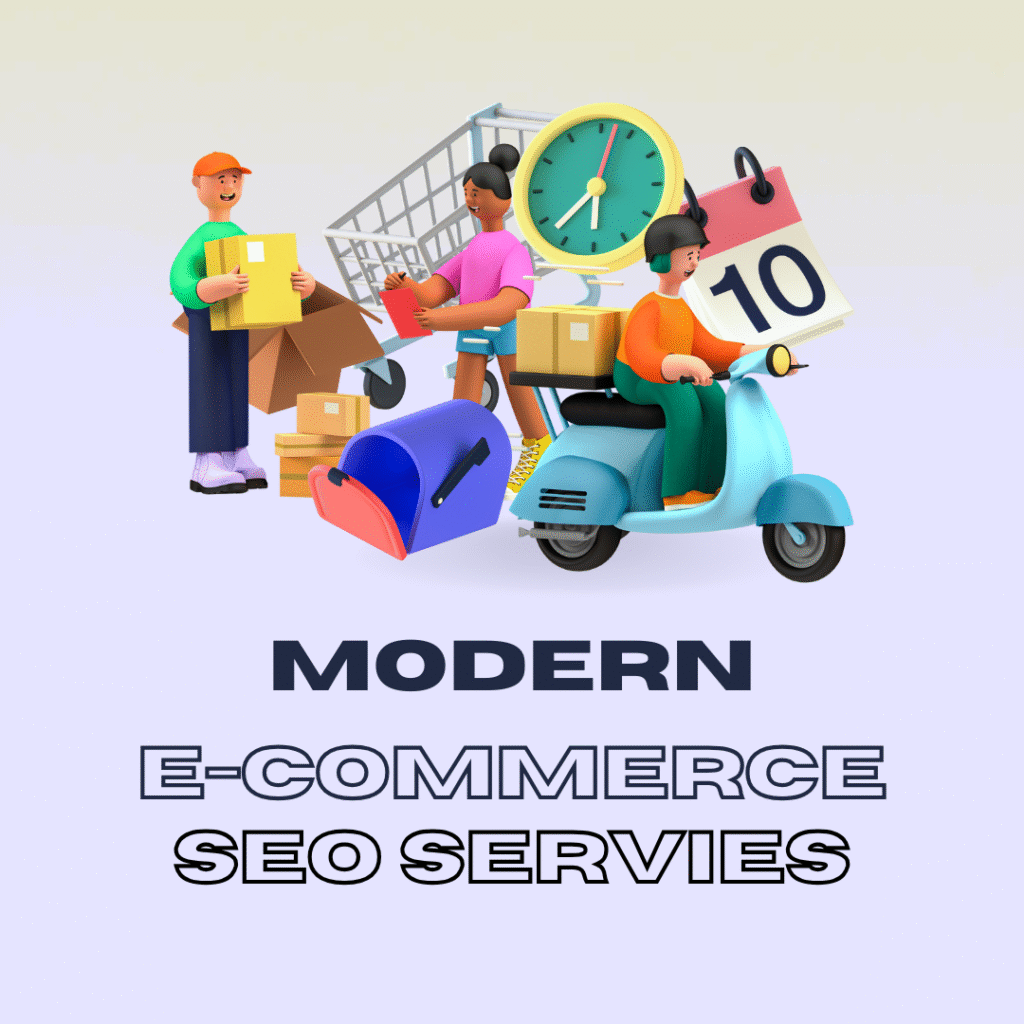
In today’s ultra-competitive digital landscape, simply investing in Ecommerce SEO Services isn’t enough. You need clarity on how to measure success, so you can scale what works and discard what doesn’t. In this deep-dive guide, we’ll walk you through a powerful, actionable framework — loaded with metrics, business models, proven case studies, and best-practice tips — so you can confidently assess the ROI of your Ecommerce SEO Services campaign.
Why measuring success of Ecommerce SEO Services matters
Investing in Ecommerce SEO Services is a strategic move, but without measurement you’re flying blind. By tracking key indicators, you:
- Ensure your SEO efforts are aligned with business goals, not just traffic volume.
- Identify what’s working (and what’s not) so you can optimize continuously.
- Demonstrate clear return on investment (ROI) to stakeholders.
- Use insights to scale your model, replicate successful tactics, and future-proof your store.
Metrics matter because in ecommerce, visibility without conversion is wasted opportunity. According to one source: “Traffic is valuable only if it converts.” Reddit+1
Another article argues that the top 3 Google search results capture ~54.4% of clicks — meaning ranking improvement is only a part of the story. Prerender+1
In short: use Ecommerce SEO Services to move beyond rankings and into actual business growth.
Key metrics to track for Ecommerce SEO Services success
Here’s a detailed list of metrics you should monitor — grouped by category — so your Ecommerce SEO Services deliver tangible value.
1. Visibility & Traffic Metrics
- Organic search sessions (non-paid visits) to product/category pages. CakeCommerce+1
- Keyword rankings (especially high-intent, commercial terms). SurferSEO+1
- Click-through rate (CTR) from search engine results pages (SERPs). Semrush+1
- Impressions and visibility: how often your pages show up in search results. BigCommerce+1
2. Engagement & Quality Metrics
- Average session duration, pages per session, bounce rate — measure how deeply visitors engage. Traffic Think Tank+1
- New vs returning visitors: indicates if you’re acquiring fresh traffic and building loyalty. Fera – Reviews App for Shopify
- Scroll depth and “add-to-cart” events: signals of product page performance. Traffic Think Tank
3. Conversion & Revenue Metrics
- Conversion rate: of visitors turning into customers. The Good+1
- Average Order Value (AOV): higher AOV means each sale is more valuable. The Good+1
- Customer Acquisition Cost (CAC) and Return on Ad Spend (ROAS) when SEO supports paid efforts. The Good+1
- Revenue from organic search: the ultimate gauge of Ecommerce SEO Services success. Case study evidence below shows this matters.
- Repeat customer rate & Customer Lifetime Value (CLV): SEO isn’t just about first sale but building recurring value. The Good
4. Technical/Operational SEO Metrics
- Indexed pages vs crawlable pages: ensures search engines see your content. Prerender
- Page speed / Core Web Vitals: ecological for UX and SEO. BigCommerce+1
- Internal linking & site architecture health: ensures your product pages are discoverable.
- Backlink profile / domain authority: higher authority helps rankings. Semrush
Business-Model Framework for Measuring Ecommerce SEO Services Success
Here’s how to structure your measurement into a business-model-friendly workflow for Ecommerce SEO Services.
- Define clear goals – e.g., increase organic revenue by 30% in next 12 months; raise organic conversion rate by 15%.
- Segment your funnel – Awareness (traffic) → Engagement (product view/Add to cart) → Conversion (sale) → Loyalty (repeat purchase).
- Map metrics to funnel stages – e.g., for awareness measure organic sessions; for engagement measure bounce rate & pages/session; for conversion measure AOV + conversion rate.
- Benchmark – Use industry benchmarks to set realistic baselines. For example, one source suggests starting metrics: organic sessions, CTR, conversion rate, AOV and keyword rankings. CakeCommerce
- Track progress – Weekly for traffic/engagement, monthly for conversion, quarterly for revenue growth. BigCommerce
- Analyze & iterate – Which pages, keywords, channels are working? Which aren’t?
- Report ROI – Tie SEO outcomes to revenue growth, not just rankings or traffic.
Proven Case Studies & Examples of Ecommerce SEO Services Success
Real-world evidence is powerful. Here are some high-authority examples of Ecommerce SEO Services delivered strong results:
- One case study for an e-commerce site reported a 3,403% increase in keyword rankings and a dramatic lift in organic traffic after a structured SEO content strategy. SurferSEO
- In another example, a furniture ecommerce client achieved a 122% increase in organic traffic and revenue jumped 369%. searchlogistics.com
- For a brand named Milk Bar, applying focused Ecommerce SEO Services led to a 113% revenue jump in just two months. Sure Oak
- Additional authoritative resource: Google’s “Search Central” case studies library. Google for Developers
These highlight that when Ecommerce SEO Services are executed correctly — with strong strategy, content, technical foundation and measuring the right metrics — outcomes scale meaningfully.
Practical Checklist: How to Evaluate Your Ecommerce SEO Services Success
Here’s a checklist you can use to evaluate whether your Ecommerce SEO Services are performing effectively:
- Are organic search sessions increasing month-over-month?
- Are you ranking higher (and for more) high-intent/commercial keywords?
- Is the organic CTR from search results improving?
- Are visitors those who engage (lower bounce, higher pages/session)?
- Are more visitors adding to cart and converting?
- Is AOV increasing (i.e., each order is more valuable)?
- Is the revenue from organic SEO trending upward consistently?
- Is repeat purchase rate improving?
- Are technical SEO metrics (page speed, crawl stats, indexation) healthy and improving?
- Are you benchmarking and comparing to past performance and industry standards?
- Do you have dashboards/reports tied to revenue, not just traffic?
If you answer “yes” to most of these, your Ecommerce SEO Services are likely doing the job.
Common Pitfalls & How to Avoid Them
- Focusing solely on rankings or traffic — Without conversion data, traffic may not translate to revenue. Reddit
- Ignoring content relevance and user intent — Even high traffic won’t convert if it doesn’t match buyer intent.
- Neglecting technical health — Crawl errors, poor site speed, weak architecture can undermine SEO.
- Not measuring granular funnel metrics — e.g., tracking only overall conversion hides product-page issues.
- No benchmarking — Without context, you won’t know if performance is truly good.
- Poor attribution — Make sure you’re attributing organic search conversions correctly (via analytics tools like Google Analytics 4, Google Search Console). Carnegie Higher Ed+1
Final Word
When you invest in Ecommerce SEO Services, you’re investing in long-term growth. But success isn’t guaranteed just because you hired an agency or optimized your pages. Measurement is the linchpin. By tracking the right metrics — from organic visibility and engagement to conversion and revenue — you’ll be empowered to make data-driven decisions, fine-tune your approach, and demonstrate real ROI.
If you’d like a deeper consult on how to structure your own Ecommerce SEO Services measurement framework — aligned with your store’s niche, traffic volumes and business goals — I’d be glad to help.
Want to learn more from my professional insights? Check out my personal website kiranantonyofficial.com where I share in-depth guides and strategies on digital marketing, SEO, and growth building.
